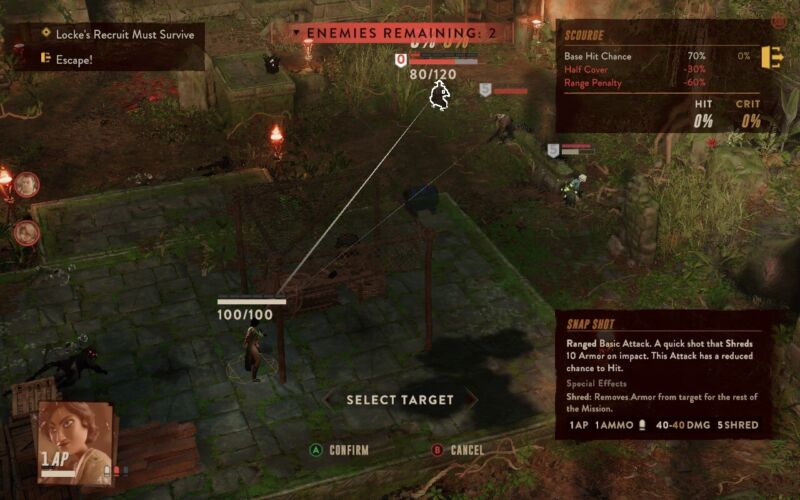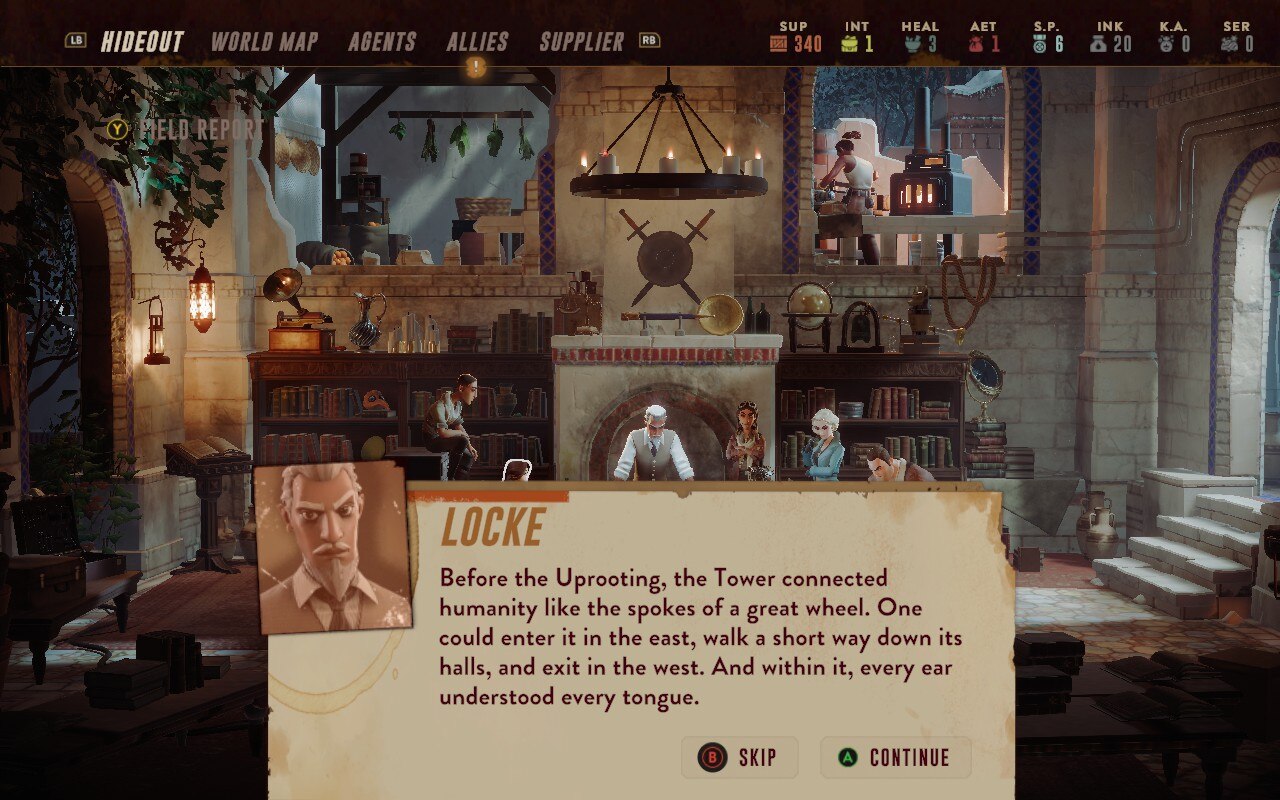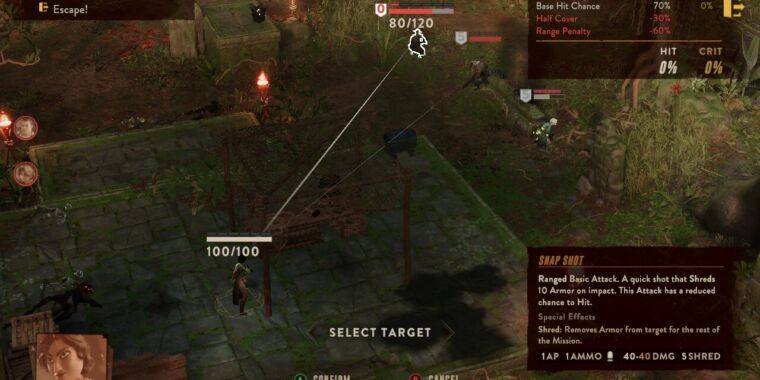
Harebrained Schemes / Paradox Interactive
Lamplighters League is a modern XCOM-style turn-based strategy game with a Weird War-ish, Indiana Jones-like feel, and a light stealth element, and it’s made by the folks who made Battletech and the Shadowrun Returns series. If you pay for Game Pass, or you see this game at any price that feels reasonable (including its debut $50), that should tell you enough about whether to try it. I think you should.
I wanted to get that out of the way because I have some nits to pick with Lamplighters League, some technical and some tactical. But I don’t want to lose sight of how excited I am to have a meaty new tactics game to sink into, especially one based on an original, if heavily referential, world. If you’re a fan of tile-based movements, two actions per turn, home bases full of upgrade potential, and engaging little interactions between your troops, you don’t get that many solid games like this per year, so take note of Lamplighters League. The number of years between XCOM titles is getting longer, not shorter—we need some reserves.
In case you were wondering, immediately after this dialogue, one of the characters immediately asks if he’s just describing the Tower of Babel. Which, he is. It’s an alternate timeline, but it’s not entirely credulous. Harebrained Schemes / Paradox Interactive
Bomber jackets, Eldritch horrors, and island hideouts
The setting is an alternate 1930s, and supervillains are doing some very pre-WWII misdeeds: raising the dead with Egyptian powers for fascist ends, calling forth a Lovecraftian horror, and channeling undead power through industrial schemes. The one surviving member of the League of Extraord … err, Lamplighters League, needs to stop them. His truly good and notable colleagues are all gone, so he turns to you, a collection of thieves, scoundrels, assassins, misfits, and only-in-it-for-the-money types who will absolutely never be swayed into noble heroism, no siree.
That’s the setup, and how much more of it you take in, or care about, is up to you. There are many notes to read (helpfully marked “Lore”), optional dialogue to hear, and skip-offering cut scenes. I enjoy the intermittent immersion; this developer is good at knowing how much to offer and how often. Even more enjoyable are the characters and their voice actors, who keep things lively, crack a few wry jokes, and comment surprisingly often on very specific happenings. Each of them has the rough outline of a stock character, but there’s a lot of detail in their interiors.
You manage your skills, gear, cards, injuries, and the like at your home base, a tropical island compound overseen by Locke, the last of the original Lamplighters. Here, you can dole out skill points and supplies, upgrade weapons and cards and healing, and buy the stuff you’ve researched with the game’s most universal currency, Supplies. None of this is new to a veteran of XCOM, or even that game’s progeny, like Mario + Rabbids. But it works, in that it feels like there’s never quite the materials you need to assure victory, but just enough to feel progression.
Every week, you look at a world map, then decide which kind of missions you want to assign to three or four of your lovable scamps, plus a couple solo-work side missions, and where. Every heist, sabotage, rescue, or other task you don’t take on allows the three villains to gain a bit more control. You choose between long-term gains (recruits, intel, quest advancement), short-term goods (needed for supplies), and holding back the progress of one villain or another. There’s no perfect choice, and, for gameplay reasons, you can’t do more than one main mission per week, no matter how many dapper heroes you sign up. You’re always a little bit behind, with occasional bursts of victory.
The characters’ skill trees are fairly rich, allowing you a few different ways to focus their talents. You can mold Fedir, a Russian bruiser, into a run-and-gun shotgun enforcer, a rage-fueled damage sponge, or a hand-to-hand knockdown specialist, depending on how you advance his skills and load him out. Some characters are more pliable than others (snipers gonna snipe), but you’ll find several variables to play with: crit gambling, debuff wizardry, free reloads, and the like.
An interesting spin is the Undrawn Hand, a tarot-like deck that grants powers (or, in the case of stress breaks, limits) to each of your heroes. Combined with the skill tree and equipment, you can get some fairly strong builds set up or give a character you find otherwise uninspiring some useful skills. It’s a bit of randomization that may make replays interesting.









